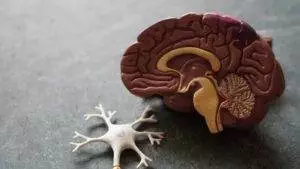-
 Art of Wellness Acupuncture & Traditional Chinese Medicine (TCM)11704 Wilshire Blvd, Suite 295, Los Angeles, CA, 90025
Art of Wellness Acupuncture & Traditional Chinese Medicine (TCM)11704 Wilshire Blvd, Suite 295, Los Angeles, CA, 90025
myartofwellness@gmail.com310-451-5522 Office Hours
MonClosedTue7:30 am --4 pmWed7:30 am --4 pmThu7:30 am -- 4 pmFri7:30 am -- 4 pmSat7:30 am -- 4 pmSunClosedOur office opens from Tuesdays to Saturdays 7:30 am to 4 pm, will be closed on Memorial day, Independent day, Labor day, Thanksgiving day, Christmas and New year.
-
Recent Posts
- How to Treat MCAS With Acupuncture and TCM
- How to Treat Shin Splints With Acupuncture and TCM
- How to Treat Dysautonomia With Acupuncture and TCM
- How to Treat Myofascial Pain Syndrome With Acupuncture and TCM
- How to Treat Costochondritis With Acupuncture and TCM
- How to Treat Ankylosing Spondylitis With Acupuncture and TCM
- How to Treat Gastroparesis With Acupuncture and TCM
- How To Treat Sleep Apnea With Acupuncture and TCM
- How To Treat Baker’s Cyst With Acupuncture and TCM
- How to Treat Sinusitis With Acupuncture and TCM
- How To Treat Sjogren’s Disease With Acupuncture and TCM
- How to Treat Raynaud’s Syndrome With Acupuncture and TCM
- Sign up to receive news and updates and get my free report:“The Top 10 Reasons to Try Acupuncture”

Sleep
How to Treat ADHD With Acupuncture and TCM
By Xiaomei Cai, L.Ac., Ph.D. & Qineng Tan, L.Ac., Ph.D.

Does my child have ADHD? Do I have ADHD? ADD/ADHD is a mental health disorder that causes children and adults to have problems with concentration, hyperactivity, or both. Trouble in school, problems at work, physical restlessness, mood swings, and frequent feelings of frustration can all be signs of ADHD in children and adult ADHD. Acupuncture and TCM offer a way to help symptoms of ADHD holistically, without the side effects caused by ADHD medications.
ADD stands for Attention-Deficit Disorder, referring to the poor concentration and problems staying on task that are often experienced by people with this neurodevelopmental disorder. Children and adults with ADD are easily distracted; they may appear to be “daydreaming” a lot of the time. ADHD stands for Attention-Deficit Hyperactivity Disorder, in reference to cases in which a person also exhibits impulsiveness, or difficulty sitting still. ADHD usually starts in childhood; often, ADHD symptoms carry over into adulthood and continue to cause problems if not addressed.
While ADHD in adolescents and children has been studied widely in recent years, the causes are still unknown. It is generally believed to be due to disordered biological processes occurring in the brain, and considered to be possibly genetic in origin. ADHD may be related to atypically low levels of chemical neurotransmitters like dopamine. Metabolism in the part of the brain that controls attention, movement, and social interaction appears to be different in brain imaging tests of children with ADHD.

For children with ADHD, this may lead to problems in school, even learning disabilities. Interrupting, not being able to wait their turn, fidgeting, and being forgetful or seeming “careless” are the obvious outward signs of ADHD that can make school challenging for children, and cause them to be considered disruptive in the classroom.
Adult attention disorder may show up as reckless behavior (traffic tickets, accidents, etc.), problems in relationships, trouble organizing things like paying bills or missing appointments, losing belongings, not being a “good listener,” or anger management issues.
According to current conventional medical thought, ADHD is considered a psychiatric condition: a product of chemical imbalance in the brain. ADHD in children is associated with behavioral problems that make it difficult to excel in school. Adults with ADD may have trouble finding success in their daily work and lives. For these reasons, people will consider getting medical treatment for ADHD. As with most psychiatric issues, treatment tends to focus on a combination of behavioral counseling and pharmacological intervention. Medications used to treat ADHD in both children and adults are stimulants that are thought to help boost attention span and a person’s ability to focus.
Acupuncture and TCM herbs can be used as an adjunct therapy or an alternative to medical treatment with drugs for ADHD in both children and adults.
Top 3 Types of ADHD:
ADD or ADHD symptoms manifest in a unique combination in each individual. Presentations of ADHD are divided into three categories:
- Inattentive/easily distracted type
- Hyperactive, impulsive behavior type
- Combined type, exhibits both inattention and hyperactivity
While boys are statistically more likely to be diagnosed with ADHD, this may have something to do with the fact that ADHD symptoms show up differently in girls than they do in boys. Parents and teachers may have a stronger tendency to explain girls’ behavior as being personality-based (“talkative” or “tomboy-ish”) rather than a serious problem worthy of attention. Girls may also be more likely to compensate for their ADHD, finding coping mechanisms that help them get along with teachers and appear to be OK, even if they are struggling with schoolwork or social problems.
ADHD and ASD (autism spectrum disorder) can often present in similar ways, and can coexist in some cases. Over half of people who have been diagnosed as autistic also show signs of ADHD, while about a quarter of people with ADHD are also considered to be on the autism spectrum. Some of the key differences between these two neurodevelopmental disorders are that children with ADHD are much more likely to show improvement in their behaviors as they grow up, and that people with ASD are more likely to exhibit “hyperfocus” rather than distraction.
When symptoms of ADHD are found in children, it is not unusual for parents to recognize that they, too, have faced similar struggles in their lives. Research suggests that about half of the time that a child is diagnosed with ADD or ADHD, at least one of their parents shows signs of the disorder, as well.
Top 10 Symptoms of Adult ADHD

Because ADD/ADHD is a mental health issue, it can be difficult to clearly identify. Many of the symptoms associated with ADHD are similar to those of anxiety. It is not uncommon for people with adult ADHD to also have anxiety or depression, so the conditions overlap.
- Trouble focusing on tasks or multitasking, poor concentration
- Impulsive behavior, recklessness
- Disorganization
- Poor time management skills, difficulty prioritizing or staying on topic
- Restlessness, sleep problems
- Easily frustrated
- Frequent mood swings
- Lose temper easily
- Difficulty articulating thoughts to others
- Difficulty coping with stress
Of course, everyone experiences some or all of these behaviors and emotions at some point in their lives. But if these problems began in childhood and continue to cause problems in daily life on an ongoing basis, then it may be due to adult ADHD.
Test for ADHD
Evaluation for ADHD is usually performed by a mental health professional, pediatrician, or family physician. There is no one specific test to determine if a child or adult has ADHD. Diagnosis is usually based on a comprehensive discussion with the patient and family members to determine whether a person displays 5-6 or more commonly recognized symptoms of ADD or ADHD, according to guidelines set by the American Psychiatric Association.
Brain imaging methods such as MRIs are used to conduct research about ADHD, but they are not part of a typical diagnostic process for the average person.
Medications for ADHD
Doctors commonly treat ADD or ADHD with stimulant medications that increase levels of dopamine and norepinephrine and are meant to help them focus better. These medications are based in amphetamine (Adderall, Dexedrine, etc.) or methylphenidate (Ritalin, etc.). Some are short-acting and need to be taken in 4-hour intervals; others are longer-acting, or designed to last all day.
While these medications are considered safe for children, they do not work in every case, and they carry a variety of side effects, including: changes in appetite, stomach problems, and sleep problems. These types of drugs constrict the blood vessels and can cause heart problems like arrhythmia, high blood pressure, and even heart attacks in some patients. They can also have a negative impact on mood and mental health, causing a child or adult to become even more irritable and/or anxious. In some cases, stimulant medications have been linked to suicidal ideation and aggressive behavior in children and adolescents.
Acupuncture for ADHD

TCM philosophy acknowledges the interconnectedness of the mind, spirit, and body. In the TCM view, problems like ADHD are concerned with imbalances of the Heart, the Mind, and the Shen (spirit or emotions). Pathogens like fire, wind, and dampness can invade the head, affecting the mind as well as the physical organs of the body.
Problems with concentration and restlessness stem from wind and excess heat in the head. Feelings of anger and frustration are often rooted in Liver Qi stagnation. Troubles with the appetite and digestion are often connected to deficiency in the Kidneys and Spleen. Thus, acupuncture treatment and herbal preparations will be designed to clear heat, get Liver Qi moving freely, and strengthen the Spleen and Kidneys.
The medications often prescribed to treat ADHD can actually have further negative effects on the heart and kidneys, causing deficiencies of Liver Qi and Kidney Qi.
A research study conducted with almost 600 children showed that acupuncture had an 84% efficacy rate. A study to test the effectiveness of electro-acupuncture on preschoolers with ADHD found not only that the majority of children showed improvement of symptoms, but that the improvement was still evident at a six-month follow-up.
Auricular acupuncture, in which points on the outer ear are stimulated with very tiny, thin needles or seeds that can be stuck to the ear and gently massaged daily, can be particularly effective for children, as it is very minimally invasive.
Certain herbs used in formulations to address attention deficits have been shown to help improve learning and memory.
Acupuncture Near Me for ADHD
If you or your child is struggling with attention deficits or impulsiveness, it can be stressful and scary to decide what to do about it. Poor concentration and hyperactivity can get in the way of doing well in school or work, and make it difficult to have positive social interactions and form relationships. It is certainly important to address these issues rather than ignoring them and hoping they’ll go away. However, many people are concerned that medications may have negative side effects, or be habit-forming. You may want to consider acupuncture as a natural way to address ADHD.
*This article is for education from the perspective of Traditional Chinese Medicine only. The education provided by this article is not approved by FDA to diagnose, prevent, treat and cure human diseases. It should not stop you from consulting with your physician for your medical conditions. Traditional Chinese Medicine is based on Qi, which is an invisible force that usually cannot be observed by modern science. Because science focuses on testing ideas about the natural world with evidence obtained through observation, these aspects of acupuncture can’t be studied by science. Therefore acupuncture and Chinese herbs are often not supported by double-blind, randomized trials, and they are considered alternative medicine therapies in the United States.
How to Treat Morning Sickness With Acupuncture and TCM
By Xiaomei Cai, L.Ac., Ph.D. & Qineng Tan, L.Ac., Ph.D.

Nausea or vomiting during the first few months of pregnancy, known as “morning sickness,” is experienced by more than half of all pregnant women. Severe nausea and vomiting, or morning sickness that lasts all day or further into pregnancy–called Hyperemesis Gravidarum—is less common, but can cause health problems for both the mother and the developing fetus. Acupuncture and TCM provide a natural and effective alternative for dealing with both mild and severe morning sickness.
“Morning sickness” is somewhat of a misnomer, although nausea during the first several weeks of pregnancy is often experienced early in the day, before eating. Having an empty stomach can exacerbate the queasy feeling of morning sickness. But why is it called morning sickness when it lasts all day? As many women know, morning sickness can strike at any time of day or night, and some women feel nauseous throughout the day.
The majority (at least 70%, maybe more) of all pregnant women experience some nausea during early pregnancy. Morning sickness usually begins occurring when a woman is around 6 weeks pregnant, and goes away by about the 12th week of pregnancy, or the transition into the second trimester. However, some women will continue to feel morning sickness later in pregnancy.
Medical science has not determined exactly what causes morning sickness, although it is generally thought to be related to changes in hormones, particularly an increase in hCG, known as the “pregnancy hormone.” A recent research study found that a specific genetic sequence present in some women may account for increased nausea during pregnancy. Some researchers at Cornell University have posited that morning sickness may be an evolutionary development that prevents harm to babies in utero by keeping the mother’s diet free of potentially toxic substances. They observed that in cultures where the staple diet relies more on starches and less on meat, pregnant women were less likely to experience morning sickness.
For most women, the morning sickness that occurs in the early months of pregnancy is not dangerous to their health or that of the fetus. However, feeling nauseous a lot of time is certainly uncomfortable. Some lifestyle habits can help get the nausea and vomiting under control. Acupuncture treatment and herbs can help even more to provide relief from the daily nausea of morning sickness.
For some women, morning sickness is more than just a nuisance. Not being able to keep any food down and vomiting repeatedly throughout the day for weeks or even months on end can cause serious health issues for mom and baby. Lack of proper nutrition, dehydration, and weight loss can lead to unwanted outcomes later on, including pre-term delivery and low birth weight of the infant. Hyperemesis gravidarum requires treatment. Acupuncture help for morning sickness is a natural alternative to drugs used to treat nausea.
Top 5 Symptoms of Morning Sickness
The symptom of nausea during early pregnancy is often what first lets a woman know she might be pregnant. Feeling queasy, dizzy, sensitive to smells, an aversion to certain foods, and occasionally vomiting are the most common signs of morning sickness. The sensations can be likened to those of motion sickness, or having a hangover. Many women report having a metallic taste in their mouth, and/or more saliva, which can contribute to feeling nauseated.
Severe morning sickness is a more serious problem. Signs of hyperemesis gravidarum include:
- Vomiting 3-4 times per day or more
- Feeling light-headed or dizzy after vomiting
- Dehydration: thirst, dry mouth, not having to urinate normally
- Heart beating fast, heart palpitations
- Losing weight during pregnancy (more than 10 pounds)
Some women may be at higher risk for hyperemesis gravidarum if they are: having multiples (twins or triplets), if their mother also had severe morning sickness (genetics), or if they generally tend to have a more sensitive stomach, even when not pregnant. Stress, lack of sleep, and hot weather can all trigger more nausea during pregnancy.
Medical Treatment for Morning Sickness

Nausea and vomiting during pregnancy is challenging to treat effectively, as care must be taken to avoid drugs that could harm the mother or the developing fetus. Often women are not treated for severe morning sickness until they have become so sick and dehydrated from vomiting that they need urgent care. At this point, a woman may need to be hospitalized and treated intravenously for dehydration.
There has been a somewhat standard practice of people recommending and using over-the-counter antihistamines or antiemetics like Pepto-Bismol to help quell nausea. In a 6-year study of women with hyperemesis gravidarum, researchers found that women who had used medications like Benadryl during pregnancy were more likely to experience adverse outcomes. A combination of vitamin B-6 and doxylamine is sometimes recommended. This drug combination is sold as an OTC sleep aid. Phenothiazine is sometimes prescribed for women with morning sickness, but it’s efficacy and safety for this use has not been studied extensively.
These medicines are used because they seem relatively risk-free, but they still carry the risk of side effects, like drowsiness, headaches, dry mouth, etc. In many cases, they are not totally effective. Acupuncture and TCM herbal formulations offer relief from nausea and other pregnancy issues without any negative side effects.
How Can Acupuncture Treat Nausea?
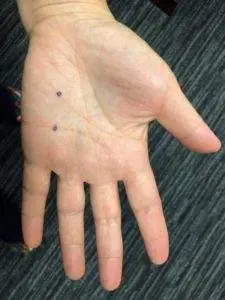
According to TCM, Qi (life force energy) moves through the body along meridians, channels that connect the organ systems. The Chong meridian connects the reproductive organs to the brain and the heart. This particular energy channel is related to all concerns having to do with female reproductive health and gynecological conditions, including menstruation and pregnancy. Its relation to the heart means that it is also connected to feelings of anxiety, panic attacks, and palpitations.
Each woman’s experience of morning sickness is different, so a TCM practitioner will look carefully at each individual patient to determine the specific imbalances causing the nausea and address them appropriately with acupuncture and herbs.
In TCM theory, morning sickness and hyperemesis gravidarum are related to the stomach, spleen, and liver. When a woman becomes pregnant, blood and Qi are strongly directed towards the pelvic area to nourish the womb (uterus) and the developing fetus. This surge of energy will also affect the digestive organs, potentially causing stomach problems. This is more likely to happen to women who have had weak digestion previously, perhaps due to a lack of proper functioning of the spleen. Likewise, the direction of more blood to the reproductive organs can cause a decrease in Yin energy in the Liver, thus increasing Yang energy. Liver fire can also trigger imbalance in the Stomach, leading to nausea and vomiting.
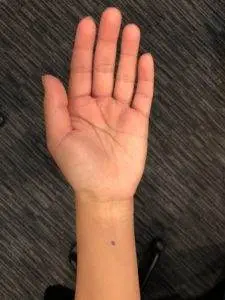
A specific acupressure/acupuncture point on the wrist is especially helpful for reducing nausea. This acupoint is known as PC6, or Nei Guan, 内关, which translates as “Inner Pass.” You may have seen special bracelets or wristbands recommended to help reduce nausea due to morning sickness (or motion sickness or postoperative nausea related to opioid medications). These products are designed to stimulate this acupressure point for nausea. While applying gentle pressure to this point can certainly be beneficial for women experiencing morning sickness, acupuncture treatment that includes this point and others is even more effective.
A systematic review of published studies related to the use of PC6 stimulation for nausea and vomiting found that this treatment produces clinically effective results, not only for pregnant women, but also for patients in cancer treatment and other people experiencing severe nausea.
A randomized trial conducted in Sweden to study the use of acupuncture treatment in conjunction with standard medical treatment for women with hyperemesis gravidarum found that acupuncture was not only very safe and free of side effects, but that women who received acupuncture were able to get over their severe nausea and vomiting more quickly than women getting only the standard treatment.
A study conducted at a maternity hospital in Australia compared women who received acupuncture for morning sickness to groups receiving placebo treatment or no treatment. The women who received acupuncture reported significantly less nausea and retching.
Top 5 Tips to Help Morning Sickness

Naturally, pregnancy is a time to embrace new lifestyle habits that are beneficial to both mother and baby. Eating a healthy diet during pregnancy can be especially difficult if you are feeling nauseous. Getting enough nutrition and rest during pregnancy is vital.
- Eat plain, “bland,” warm foods. Avoid anything that is spicy, salty, fatty, fried, or cold.
- Eat smaller meals/snacks at regular intervals throughout the day, so as to avoid the stomach being empty or too full, and to keep blood sugar levels steady.
- Sip water slowly and regularly. Don’t gulp down large amounts of liquid all at once.
- Sip ginger tea, made by steeping a few slices of fresh ginger.
- Actively prioritize stress reduction. Anxiety can exacerbate the nausea of morning sickness. Take frequent rest breaks. Ask your TCM provider to show you some gentle meditative exercises like Tai Qi or Chi Gong that can help relieve stress and nausea.
Talking with a trusted healthcare professional who understands what you’re going through can be helpful for calming anxieties about your pregnancy. Finding an experienced acupuncturist who can help you through any and all of the symptoms and worries that may come up during pregnancy, birth, and postpartum care can help to ease stress and discomfort.
Acupuncture Near Me for Morning Sickness
Acupuncture is an excellent modality not only for helping to relieve nausea due to morning sickness; TCM is a holistic form of medicine that can help women throughout pregnancy. Many discomforts and concerns may come up as a woman anticipates birth. Working with an integrative health provider who has a thorough understanding of gynecology and obstetrics from both Eastern and Western medical points of view can be beneficial to the physical and emotional health of both mother and baby. At Art of Wellness, we have over 30 years of experience helping women attain better reproductive health: from painful periods, to fertility issues, through pregnancy, postpartum, and menopause.
*This article is for education from the perspective of Traditional Chinese Medicine only. The education provided by this article is not approved by FDA to diagnose, prevent, treat and cure human diseases. It should not stop you from consulting with your physician for your medical conditions. Traditional Chinese Medicine is based on Qi, which is an invisible force that usually cannot be observed by modern science. Because science focuses on testing ideas about the natural world with evidence obtained through observation, these aspects of acupuncture can’t be studied by science. Therefore acupuncture and Chinese herbs are often not supported by double-blind, randomized trials, and they are considered alternative medicine therapies in the United States.
How To Treat ED With Acupuncture and TCM
By Qineng Tan, L.Ac., Ph.D. & Xiaomei Cai, L.Ac., Ph.D.
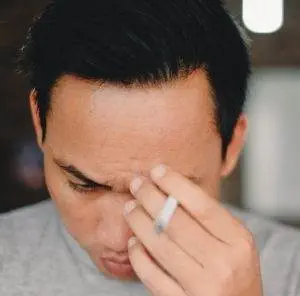
Let’s face it: most men have probably had trouble getting hard on occasion, but if it’s happening 50% of the time, or more often, then it may be a sign of men ED, or erectile dysfunction. ED refers to the inability to get or maintain an erection, making it difficult to have sexual intercourse. Acupuncture and TCM offer a natural solution for low sex drive and reproductive health problems, without over the counter ED pills.
In the past few decades, this condition, which used to be referred to as “impotence,” has come to be perceived as a men’s health issue or a men’s fitness issue that can be treated medically, rather than a personal problem. While it’s great that men can get help from doctors for this condition without embarrassment or shame, ED medications may not solve the problem for everyone. Stress, hormones, nutrition, exercise, emotions, and relationship dynamics all play a role in ED. ED can have a serious impact on a man’s quality of life, as it affects self-esteem, romantic relationships, and sperm count, and fertility.
It is estimated that about 30 million men in the U.S. experience erectile dysfunction (ED). By age 60, over 40% of men will probably experience ED. While ED drugs and over the counter ED pills help some men with ED symptoms, many men cannot use these medications because they interfere with others that are commonly used to treat heart disease. Acupuncture and TCM provide an alternative treatment for ED that can help men with this issue.
Top 10 Causes of ED
ED is a complex problem, which can involve both physical and mental components. A physical problem that causes a man to experience ED a few times may lead to emotional stress around sex and low sex drive, making the problem worse. Because the brain and hormones contribute so vitally to arousal and erection, sometimes depression, anxiety, or interpersonal feelings are the main cause of the issue. Some of the most common physical causes of ED include:
- Heart problems, high blood pressure, clogged arteries, high cholesterol
- Diabetes
- Obesity
- Use of certain prescription medications (antihypertensives, antidepressants)
- Neurological conditions, such as Parkinson’s disease or Multiple Sclerosis
- Alcoholism or excessive consumption of alcohol
- Smoking cigarettes/tobacco
- Prostate problems like BPH (enlarged prostate), or prostate cancer
- Lack of sleep, sleep disorders
- Low testosterone
Sometimes erectile dysfunction is the reason men discover that they have a heart condition or diabetes that they didn’t realize they had. When high cholesterol causes plaque to build up in the blood vessels, it’s not only the heart that is affected. Atherosclerosis (narrowing of the arteries) can also affect a man’s ability to get an erection by restricting blood flow to the penis. Inability to maintain an erection can be a sign that a man has hypertension.
What Is the Treatment for ED?
The most common medical treatment for men with ED are PDE-5 medications (like Viagra, Cialis, or Levitra), which work to dilate the blood vessels that supply blood to the penis. These ED drugs lower the blood pressure, which is why they cannot be used in conjunction with some other medications, including nitroglycerin or Imdur. If a man were to take both his ED pills and these medications, it could cause dangerously low blood pressure.
Some men experience side effects of taking these ED meds, including: headaches, blurred vision, dizziness, hot flushes, muscle pain, and diarrhea. In rare cases, men may have a painful erection that lasts longer than four hours (priapism), which can require medical treatment and/or cause permanent damage. If necessary, a doctor may numb the penis and use a needle to drain the blood that is trapped there, or use decongestant medications to help relieve the swelling. Other forms of therapy for ED include penile implants and penile injections. TCM acupuncture treatment for ED does not involve any needles inserted into the penis itself.
How Can Acupuncture Help ED?

According to TCM theory, ED is classified as a Jin Wei disorder and can follow one of a few patterns:
- Liver qi stagnation
- Blood stasis
- Kidney deficiency
TCM also acknowledges that stress, emotional and mental health disturbances are often a primary cause of ED, and seeks to incorporate counseling and awareness-building, both with the patient, and with the patient’s partner, if applicable. Sessions with a TCM provider usually involve plenty of discussion and feedback; patients feel heard and understood, which can go a long way towards relieving anxiety surrounding the ED or other sexual disorders.
TCM treatment for ED will include both acupuncture and herbs, which, combined, help to address the weakness or blockages that have developed around the liver and kidneys, strengthening the liver qi, relieving stagnation, and clearing dampness.
One study showed that, after a course of treatment including 3-5 acupuncture treatment sessions and daily herbal supplementation, almost half of the men reported satisfaction with the results.
Another study found that about two-thirds of the men who received TCM treatment reported feeling that they were “cure,” while the other third reported improved erections, but still felt that they needed more help. The group who received placebo treatment did not report improvement.
Top 5 Tips for ED Men’s Fitness

The desire to overcome ED and get your sex life back on track can be a great motivation to clean up your diet and get rid of habits you know have been holding you back from peak men’s health. Your acupuncturist can help you plan the best diet for men to help regulate hormones, reduce cholesterol, improve circulation, boost heart health and energy.
- Eliminate alcohol, tobacco, and other recreational drugs. You may feel like these substances help you to relax and get in the mood, but on a deeper physiological level, they are compounding the problem.
- Get more exercise. Ideally, balance cardio with some weight training. Losing fat and building muscle will help to balance the hormones and increase testosterone levels.
- Take care of your mental health and emotional well-being. Foster open and honest communication about ED with your partner. Acquaint yourself with men’s and women’s health issues, so that you can care for each other with empathy.
- Reduce stress. Prioritize a balanced, healthy lifestyle. Making time for yourself through regular exercise, meditation, and healing modalities like acupuncture can help improve your performance in all other areas of your life
- Get adequate sleep. When the body doesn’t get the deep rest it needs, it can lose all kinds of functionality.
Acupuncture Near Me for ED
ED is a sensitive men’s health issue. Knowing that it’s a common problem that affects lots of other men may help a little, but if ED is becoming a sexual problem that is negatively affecting your life and relationships, it’s worth it to seek out help for erectile dysfunction. If conventional medical treatment for ED isn’t working or isn’t an option, or if you want to take a more holistic approach that will help also boost your fertility and longevity, consider acupuncture treatment for ED.
*This article is for education from the perspective of Traditional Chinese Medicine only. The education provided by this article is not approved by FDA to diagnose, prevent, treat and cure human diseases. It should not stop you from consulting with your physician for your medical conditions. Traditional Chinese Medicine is based on Qi, which is an invisible force that usually cannot be observed by modern science. Because science focuses on testing ideas about the natural world with evidence obtained through observation, these aspects of acupuncture can’t be studied by science. Therefore acupuncture and Chinese herbs are often not supported by double-blind, randomized trials, and they are considered alternative medicine therapies in the United States.
How to Treat Anxiety With TCM and Acupuncture
By Qineng Tan, L.Ac., Ph.D. and Xiaomei Cai, L.Ac., Ph.D.

Everyone experiences feelings of anxiety or apprehension at times. Sometimes people suffer from excessive feelings of dread or panic, even when they are not in immediate danger. In some cases, the complex cascade of emotional and physical sensations encompassed by the term Anxiety is so pervasive that it becomes a chronic mental health condition. TCM and Acupuncture offer a natural, highly effective treatment option to reduce anxiety symptoms.
We are currently living in a particularly harsh reality in which human life is filled with setbacks and potential danger. There is always a chance that something bad might happen to you or someone close to you. In recent weeks, the coronavirus pandemic has understandably created a pervasive sense of worry amongst the population, and the numbers of people filling prescriptions for anxiety-related medications, antidepressants and sleep aids has increased dramatically.
Anxiety is clinically defined as a persistent feeling of worry, accompanied by physical sensations such as heart palpitations, dizziness, and sweating. Sometimes people describe it as being similar to the sensations you feel when you’ve tripped and you’re falling, except that the scary feeling persists for a long time; it doesn’t go away even when nothing is happening. Anxiety disorder is a very common mental health condition experienced by people of all ages; every year about 20% of Americans seek medical help for symptoms related to anxiety.
If you are feeling heightened levels of distress that are affecting your ability to sleep, focus, or care for yourself or others, please be assured that help is available. Acupuncture and other TCM treatment modalities offer a safe alternative to pharmacological drugs that can cause side effects and potentially lead to dependency and withdrawal symptoms. A qualified acupuncturist will conduct an in-depth consultation and create a program designed to specifically address each patient’s individual combination of symptoms and life situation.
What Are the Symptoms of Anxiety?
Doctors classify types of anxiety disorders into several sub-categories, including Generalized Anxiety Disorder (GAD), Social Anxiety, Obsessive-Compulsive Disorder (OCD), Post Traumatic Stress Disorder (PTSD), Phobia-related Disorders, and Separation Anxiety (anxiety in children).
The most common symptoms of various types of Anxiety include:
- Rapid or labored breathing
- Rapid heartbeat or tachycardia
- Feeling “on edge” or irritable
- Sweating
- Difficulty concentrating
- Memory loss
- Difficulty sleeping
- Fatigue
- Stomach upset
- Anxiety headache
Each person will present with a unique combination of symptoms and sensations, along with her own “triggers” or things that seem to cause the symptoms to manifest. Most people who seek medical care for their anxiety symptoms are either prescribed psychiatric tranquilizing medications such as Xanax or Atavan, referred for psychotherapy, or both. Some doctors use antidepressants such as Zoloft, Lexapro or Prozac to treat anxiety. These Selective Serotonin Uptake Inhibitors (SSRIs) may help reduce symptoms in some cases, but all of these types of medications can cause side effects and lead to dependency. TCM and Acupuncture treatments not only address specific symptoms of anxiety, but address the root causes of the disorder.
TCM Deals With All Types of Anxiety Disorders

Anxiety, like depression and other mental health disorders, carries the disadvantage of being “invisible.” Other people, and even many medical professionals, simply can’t see physical evidence of the problem, and can’t empathize with the suffering involved. Well-meaning family members and friends might offer suggestions to “calm down” or reminders to stay positive, all with the implication that nothing is really wrong or that “it’s all in your head.” Being plagued with constant self-doubt further amplifies the problem. Anxiety is a real health issue, and TCM offers effective modalities to address it.
Modern medicine has only recently begun to make the connection between emotional and physical maladies. Traditional Chinese Medicine (TCM), on the other hand, has acknowledged for centuries that the mental, emotional and physical experiences of human beings are all inextricably linked. Sometimes a physical injury or traumatic experience can set the stage for a mental health problem. For example, a car accident that creates even minor injuries to the body might trigger future panic attacks, phobias, or Post Traumatic Stress Disorder (PTSD). Other times, a mental health condition like chronic Generalized Anxiety Disorder (GAD) can affect sleep, eating, and other behaviors to such an extent that a person becomes more susceptible to illness and disease. It would not be surprising to see an increase in cases of Agoraphobia (fear of leaving one’s home) and Obsessive-Compulsive Disorder (OCD, which sometimes causes compulsive hand-washing and cleaning as well as hoarding behaviors) as a result of the current coronavirus pandemic. People who experience multiple panic attacks may be diagnosed with panic disorder.
Anxiety disorders already tend to lead to feelings of isolation. Now that most people are spending far more time alone or sequestered with family members and roommates, already existing feelings of fear may be exacerbated. People who have never had to cope with anything beyond normal, mild anxiety may suddenly find themselves feeling real panic for the first time. Additionally, some might feel guilty or ashamed about reaching out for help for these problems when there are so many other people hurting for more apparent reasons. But there is real help for anxiety, and getting that help during this time of crisis makes sense. There is no need to suffer. Find acupuncture near me to address anxiety symptoms and the root causes before the problem becomes more severe and chronic.
Acupuncture for Controlling Anxiety
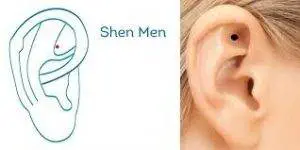
Conventional medicine generally attributes anxiety disorders to abnormal functioning of the brain and nervous system. The feelings associated with anxiety – the emotional sense of worry, the breathlessness and restlessness of the body, the behavioral instincts to freeze or to run – are all exaggerated responses to stress. Stress is the body’s natural reaction to perceived dangers in the environment. When something threatens us, the sympathetic nervous system kicks into gear, and the adrenal glands pump out the hormones that flood the body with energy–what is often referred to as the “fight or flight” response. Normally, once the threat has passed, adrenaline will take some time to move through the body and then dissipate, and a feeling of relaxation is eventually restored. When a person has an anxiety disorder, this hormone release can be triggered by thoughts, and the fear of the physical response itself becomes a part of the vicious cycle.
Acupuncture treatment has been shown to act upon the nervous system, facilitating the release of serotonin, endorphins and noradrenaline, all of which contribute to relaxation and a sense of well-being. Stimulation of specific points have been clinically proven to reduce perceived feelings of anxiety as well as reducing the heart rate and blood pressure of patients. Auricular acupuncture, which specifically uses points on the ear, has been shown to be effective for anxiety. This method is particularly useful, as patients can be fitted with a tiny needle that can be stimulated with gentle pressure as needed to help alleviate symptoms as they appear.
Auricular acupuncture has been used for thousands of years, not only in China, but all over the world. Modern critical analysis has demonstrated that auricular acupuncture affects the parasympathetic nervous system in ways that help alleviate pain and reduce anxiety symptoms. Electro-stim acupuncture, or electro-acupuncture, is another effective modality used by TCM doctors.
How Does Acupuncture Benefit Anxiety Relief of Panic Attacks?
One of the great advantages of acupuncture treatment over conventional methods of talk therapy and pharmacological intervention is that it has an immediately discernible effect. Patients often leave an acupuncture session with a deep sense of calm and relaxation. Reports of improved sleep usually follow quickly. In addition, the long-term effects of regular acupuncture sessions are cumulative, and people report a sustained decrease in episodes of anxiety and panic attacks.
One controlled study compared groups of patients treated with a regimen of acupuncture with moxibustion to a group prescribed a type of benzodiazepine medication. The results showed higher efficacy in reducing anxiety symptoms among the patients receiving acupuncture.
TCM Doctors’ Top 10 Suggestions on Self Care for Anxiety
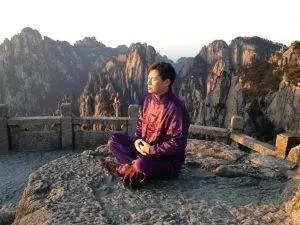
Here are some natural remedies for anxiety you can utilize at home. With consistent practice, these habits will help alleviate stress and reduce anxiety symptoms.
- Meditation for anxiety– Those struggling with anxiety may well be tired of hearing well-meaning friends suggesting they “Relax!” or “just breathe.” But studies have shown that regular meditation practice can significantly reduce anxiety. There are many methods; it is important to find a method that works for you. This study suggested mindfulness meditation may be especially effective.
- Waterfall Meditation – In this exercise, imagine yourself at the base of a waterfall. As you breathe in and out, picture the water gently raining down on you, trickling down each route until the tension inside you releases, relaxing parts of your body one section at a time. Allow your entire body to enter a peaceful and relaxed state. Let the image of the water wash away any stress or anxiety that burdens you.
- Physical Exercise – By now it has been well documented that regular exercise is good for health in every way, lowering the risks of all types of chronic disease. Movement helps reduce anxiety symptoms by reducing adrenal reactivity, increasing the output of endorphins and endogenous (naturally produced in the body) opioids, and even stimulating the growth of new brain cells. It is also suggested that exercise functions as a type of exposure therapy. When people become more used to the sensations of an increased heart rate, heavier breathing, and sweating due to cardiovascular activity, it increases their tolerance for these same symptoms when they appear as part of an episode of anxiety. If you are able to go for a walk or run while following social distancing guidelines, it is especially helpful to get some sun exposure, as well. Put on some music or a favorite workout video; rhythmic movement that engages the large muscle groups provides great benefits.
- Tai Chi and Chi Gong –These ancient traditional forms are “moving meditations” that work upon the endocrine circulatory, and nervous systems to balance energies and strengthen Qi.
- Good Eating Habits – Caffeine, sugar, processed and spicy foods can trigger anxiety. Complex carbohydrates like brown rice, barley, quinoa and oats are relaxing, as are nuts and chickpeas, which contain tryptophan. Now is a good time to become more intimately involved with preparing dishes at home, and this process can also be soothing: a mindfulness exercise that results in a healthy meal! Your TCM provider will provide more detailed instructions for a nutrition program for your specific situation.
- Stress Reduction –Reducing stress goes hand in hand with reducing anxiety. Especially now, carefully manage your daily activities so as not to become overwhelmed. Allot a short period of time for checking the latest news and catching up with friends; then consciously disengage from screens and virtual realities. Social media has already been called into question for its apparent increase of anxiety among teenagers, but it has a real impact on people of all ages. Comparing your situation and surroundings to the carefully curated content you see on sharing platforms can make you feel pressure, shame, a sense of inadequacy. Commit to being grounded in your immediate surroundings and grateful for the blessings that are in your life right now. Recognize that, while it is important to educate yourself about the novel coronavirus, many of the opinions being expressed online are not informed and are designed to provoke an emotional reaction. Avoid reading comments that you know might be triggering.
-

Acupuncture treatments can alleviate sleep anxiety. Sleep Better to Combat Sleep Anxiety – Repetitive, OCD intrusive thoughts and restless energy within the body can make sleeping difficult when you are experiencing sleep anxiety. Cortisol–another stress hormone–levels tend to rise in the evening, and many people register this sensation as anxiety at night. Eating simple carbohydrates like sweets or chips suppresses cortisol and offers a temporary feeling of relaxation. But consuming these foods or alcohol to artificially reduce stress leads to less restful sleep later. Dr. Tan and Dr. Cai can offer many suggestions for how to modify your habits to achieve a better night’s sleep.
- Learn a Language – Distance learning has quickly become an integral part of our lives. Many people are using their time at home to learn new skills. Now is a great time to learn a new language. Studying and practicing will help you focus your mind and instill a sense of accomplishment to help relieve anxiety.
- Structure Your Days – Even though daily life has taken an unusual turn, maintaining a consistent schedule helps keep hormone and energy levels more consistent. Rise and retire at about the same time each day. Eat regular meals. Set aside hours for work and much-needed time for rest and relaxation. Creating a structure for your life helps you feel that you are controlling what you can.
- Cognitive Behavioral Therapy (CBT) 5-4-3-2-1 Grounding Exercise – Use this exercise when feeling anxious or suffering a panic attack. This helps you ground yourself in reality by actively using your five senses. Look for the things, and then name them out loud.
- 5 – Count five things in your immediate environment that you can SEE.
- 4 – Count four things near you that you can TOUCH.
- 3 – Count three things near you that you can HEAR.
- 2 – Count two things you can SMELL.
- 1 – Count one thing you can TASTE.
How to Use 3 Acupressure Points for Anxiety Relief
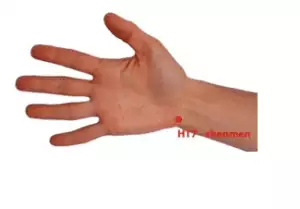
Acupressure is a technique patients can use anytime for symptom relief. Apply gentle, firm pressure to these points.
- Liver 3 is a grounding point that helps redirect rising energy downward. Located between the first and second toes, you will find a very tender spot. Try applying gentle pressure here to alleviate irritability, headaches, TMJ, and anxiety.
- You have probably seen the bands people sometimes wear around their wrists to prevent nausea. These are designed to put pressure on Pericardium 6, which quells queasiness. The point is located between the two tendons on your wrist, two fingers up from the wrist crease. Pressing on it is immediately calming. It helps to open the chest, as well, so if you feel tightness in the chest or shallow breathing, use this point.
- Shen Men, called the “Spiritual gate” point, releases heart fire, excitement, anger, irritation and anxiety.
Look for Acupuncture near me in Los Angeles for Anxiety
At Art of Wellness, one of the top 20 clinics in greater Los Angeles selected by experts, we are concerned that so many people are feeling the weight of these difficult times and having to go it alone. But we are here, committed to helping people whether they are suffering possible symptoms of COVID-19 or intense anxious feelings related to fear of the virus. Please do not hesitate to reach out to us at 310-451-5522 or email us at myartofwellness@gmail.com if you or someone you love is battling anxiety.
*This article is for education from the perspective of Traditional Chinese Medicine only. The education provided by this article is not approved by FDA to diagnose, prevent, treat and cure human diseases. It should not stop you from consulting with your physician for your medical conditions. Traditional Chinese Medicine is based on Qi, which is an invisible force that usually cannot be observed by modern science. Because science focuses on testing ideas about the natural world with evidence obtained through observation, these aspects of acupuncture can’t be studied by science. Therefore acupuncture and Chinese herbs are often not supported by double-blind, randomized trials, and they are considered alternative medicine therapies in the United States.
What is Multiple Sclerosis and How to Manage MS with TCM & Acupuncture
Multiples Sclerosis is autoimmune disease, Traditional Chinese Medicine & Acupuncture are very helpful to improve these condition.
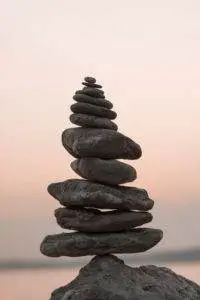
Dr.Tan’s Case and Testimony
Mr. M- a healthy 50-year old Caucasian gentleman—first visited my office Art of Wellness Acupuncture a few years ago. As an attorney, he had been working very hard to support his two daughters, who were both in college. About four months ago, the onset of serve lower back pain along with tingling in his left leg changed his life completely. He saw several doctors, had a number of x-rays and an MRI which revealed a moderate bulging disk on L4-L5. He tried different pain pills, NSAIDs, and underwent three months of physical therapy, none of which had helped. Recently, he had been experiencing numbness and weakness in his left leg, and was suffering from depression due to his inability to carry on with daily work and regular activities. When he talked to me, I noticed that he constantly rubbed his eyes. I asked if he felt any abnormalities in his vision. He answered yes, and that he had periodic occurrences of blurred vision. When I suggested that he showed me how he walks, I noticed his poor balance. He tended to fall on his left side because his left leg did not seem to follow his motion. Then I checked his knee and ankle reflex and found that they were excessively active. I was almost certain that the condition that made him suffer so much in the last few months was not a simple bulging disk or sciatica; it was a disorder of the central nervous system-Multiple Sclerosis. Immediately, referred him to a neurologist and suggested that he have a brain and cervical MRI. Two weeks later, he came back to my office with a confirmed diagnosis of Multiple Sclerosis.
Mr. M. is just one of 200 patients who are diagnosed with MS every week in the United States. There are about 400,000 people in the U.S. and 2.5 million patients who are suffering from this disease in the world.
Cause of MS
MS is an autoimmune disease in which infections or environmental changes can confuse the body’s defense system. Sometimes a foreign antigen mimics a group of the body’s own proteins. When the immune system response by mounting an attack against these foreign invaders, it inadvertently destroys the foreign antigen along with any similar antigens, including the body’s own tissues.
A recent study shows that a virus called adenovirus type 2 looks remarkably similar to the composition of the protective covering around the spinal cord and parts of the brain—the myelin sheath cells. The attacks of the immune system of this virus along with the mistaken attack on the myelin sheath is believed to be the ultimate cause of multiple sclerosis。
Common symptoms of MS
- numbness or tingling, usually in the leg or arm
- muscle weakness
- dizziness
- spasticity
- pain (moderate to severe)
- Ataxia
- Tremor
- Slurred speech
- Blurry, double vision or blindness
- bladder malfunction
- bowel dysfunction
- sexual dysfunction
- depression
- euphoria
- cognitive abnormalities
- fatigue
Most commonly, MS first manifests itself in a series of attacks followed by complete or partial remission as symptoms mysteriously lessen. These symptoms, however, will return later after a period of stability. This is called relapsing-remitting (RR) MS.
Treatment of MS
Unfortunately, there is no cure for MS yet. In Western Medicine, the treatment focuses mainly on decreasing the rate and severity of relapse. Beta interferons, anti-cancer drugs (to weaken the immune system), and steroids are commonly used for the treatment of MS. These medicines can reduce the number of MS lesions, delay the progression of the disease, and provide symptomatic relief for the patient.
In TCM, a condition called “Wei Syndrome” with symptoms similar to MS, was documented 2000 years ago in a classic Traditional Chinese Medicine book called Emperor Classic Medicine. Acupuncture and Traditional Chinese Medicine has been involved in the treatment ever since. MS patients who have tried acupuncture report improvement in pain, spasticity, numbness and tingling, fatigue, depression, anxiety, and bowl, bladder function.
Maintaining a healthy lifestyle is very important for the MS patient. This includes:
- Getting enough time to sleep and rest. Go to bed early
- Exercise regularly. Tai Chi and Yoga are very good to help patient relax, balance and with muscle strength
- Balanced diet, a lot of vegetables and enough protein from white meat
- Stress management
- Daily meditation and positive thinking
- Staying connected with friends and joining a support group
- How to reduce and prevent inflammation
Patient Story- Gilly
I was diagnosed with Relapsing Remitting MS in 1991 and I had no idea what a crazy, unpredictable journey I was about to embark on.
I woke up one morning, tried to get out of bed but my legs were like jello, I had no balance and had double vision.
I was given a spinal tap and MRI and lesions were detected on my brain & cervical spine.
When first diagnosed, my neurologist put me on one of the few FDA approved medicines for MS which don’t cure the disease, but delay the progression. For that I inject myself daily and have done so for 17 years
For the first 7 years after being diagnosed, I experienced relapses (flare up of symptoms) on average twice a year. The treatment for relapses was a 5 day course of steroids administered through IV, followed by 12 days of oral steroids.
The relapses affected my motor skills the most, especially walking but after a treatment of steroids, I was almost as good as new.
My friends suggested I try acupuncture. I was recommended to Dr Tan because he had studied MS in China. *
Dr Tan has been monumental in my life. He has given me treatments for a multitude of injuries I’ve suffered over the years due to frequent falls and is an expert in pain relief. He treats me for stress relief which contributes my general wellbeing. Dr Tan is very knowledgeable about Western medicine and MS treatments so I always ask his opinion.
I’ve been diagnosed with MS for 21 years and feel fortunate that Dr Tan has been treating me for a large part of that time. Although I partake in Western medicine, I know that Western medicine only treats the symptoms but Eastern medicine treats the cause of the symptoms.
My MS has progressed to the stage that I now use a wheelchair full time.
I go to acupuncture for preventative care. My immune system needs extra help especially during cold & flu season.
I am very aware that MS is a ‘designer’ disease, and no two people have the exact same symptoms. I would encourage anyone with MS to avoid stress, keep up a healthy immune system and try to stay positive and happy, because your emotional state affects your physical being.

